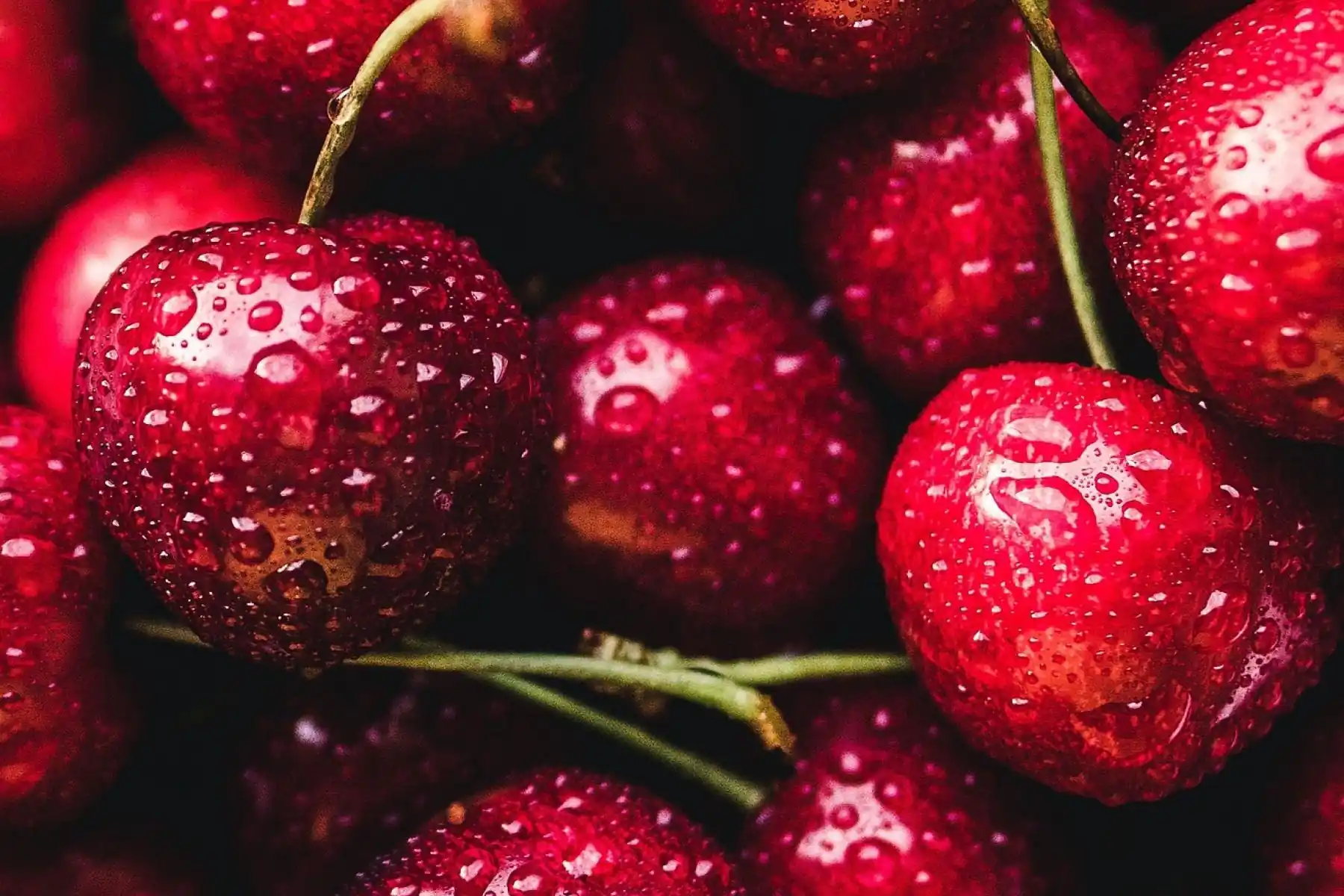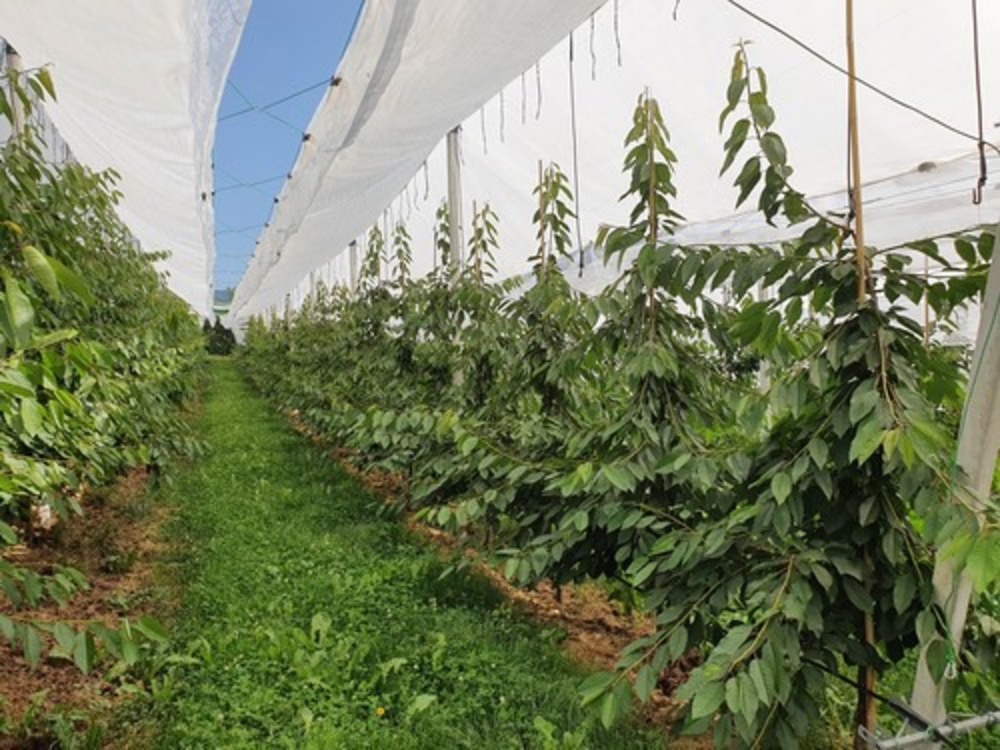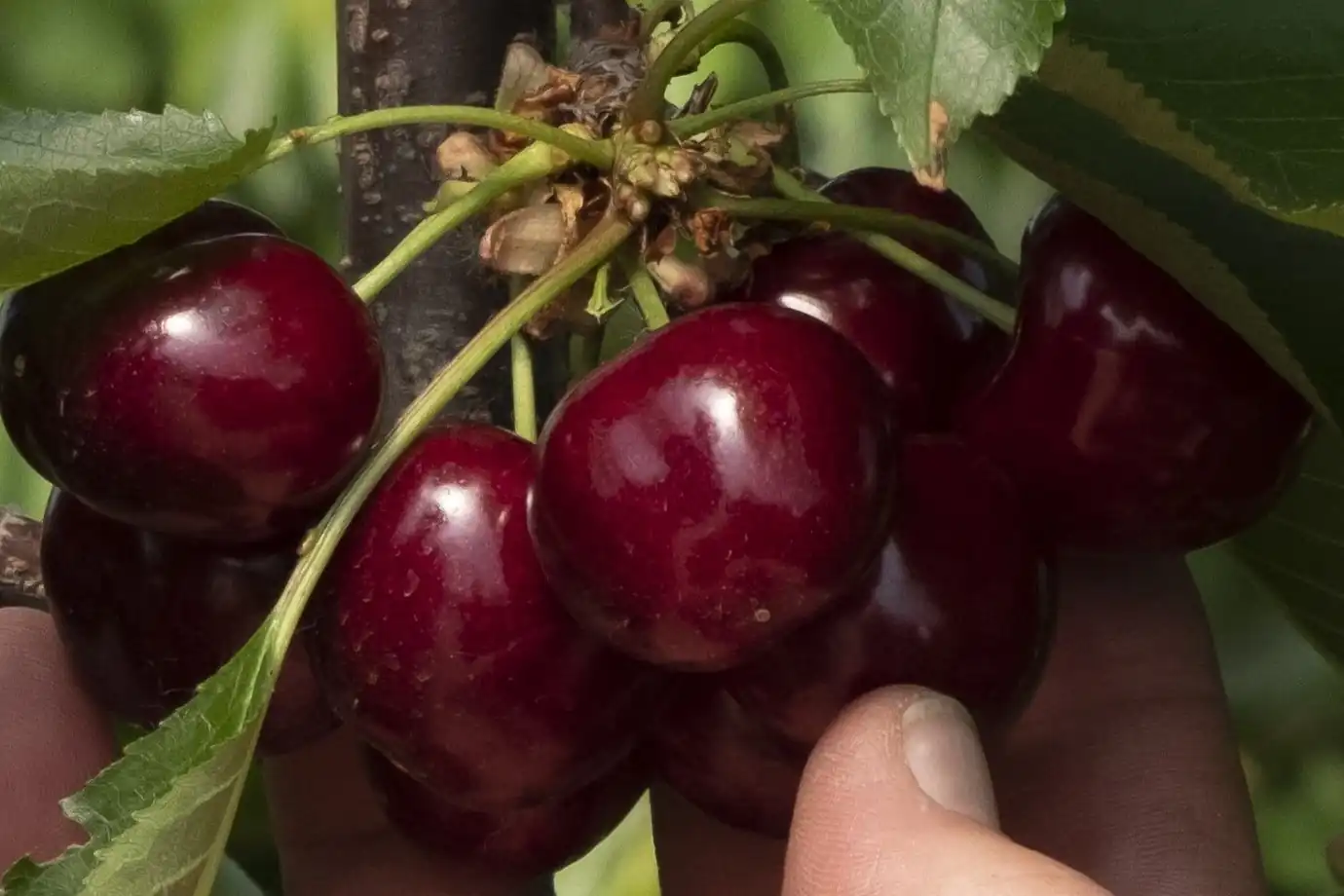The 2025/26 cherry season has officially started in Argentina, but industry operators urge caution: the quantities destined for export may fall short of the initial forecasts.
In September, the Argentine Chamber of Integrated Cherry Producers (Capci) had projected an increase of 8–12% compared to the 8,100 tons exported in the previous season, provided that weather conditions remained favorable. However, recent signals from the country’s main producing areas – particularly the Patagonian provinces of Río Negro and Neuquén – raise concerns about a possible downward revision of expectations.

The “corrimiento” worries producers
Although the fruit quality is considered good, a physiological phenomenon known as “corrimiento,” or the premature detachment of cherries from the tree, is raising concern. According to Aníbal Caminiti, director of Capci, this is a well-known event in the region, but this year it appeared with greater intensity than usual, directly affecting overall yields.
The problem may be linked to climatic anomalies. Despite the winter providing a sufficient number of chill hours, the quality of the cold was irregular, with significant temperature fluctuations in May and July. This was followed by a warmer-than-usual spring, which altered the physiological processes of the trees, reducing their ability to retain fruit, though without compromising quality.
Production areas and the issue of costs
The harvest began as usual in the provinces of Mendoza and Jujuy, but fruits from these areas – affected by the presence of fruit fly – are mainly destined for the domestic market. Exports are concentrated instead in the southern regions of the country, namely Río Negro, Chubut, Neuquén and Santa Cruz, where the core of Argentina’s export cherry production is located.
In recent years, the Argentine cherry industry has invested significantly in post-harvest technologies and irrigation systems, leveraging favorable soil and climate conditions and increasingly advanced technical know-how. However, the sector continues to grapple with high production costs, which limit competitiveness on the international market. This scenario has curbed the expansion of cultivated areas, which have remained steady at around 2,200 hectares for over 15 years.
Towards a season of stability
In light of these uncertainties, Capci has revised its projections with greater caution. Caminiti stated that, in the best-case scenario, the 2025/26 exports will remain at the same levels as last season, but a possible decline in total volumes cannot be ruled out.
One thing is certain: Argentina remains an important player in the southern hemisphere cherry sector, but it will be essential to monitor climate developments and agronomic responses in the coming months to understand the real course of the season.
Text and image source: fruchthandel.de
Cherry Times - All rights reserved











